
Exposé Online
What's old
Exposé print issues (1993-2011)
- 1 (October 1993)
- 2 (February 1994)
- 3 (May 1994)
- 4 (August 1994)
- 5 (October 1994)
- 6 (March 1995)
- 7 (July 1995)
- 8 (November 1995)
- 9 (March 1996)
- 10 (August 1996)
- 11 (February 1997)
- 12 (May 1997)
- 13 (October 1997)
- 14 (February 1998)
- 15 (July 1998)
- 16 (January 1999)
- 17 (April 1999)
- 18 (November 1999)
- 19 (May 2000)
- 20 (October 2000)
- 21 (March 2001)
- 22 (July 2001)
- 23 (December 2001)
- 24 (April 2002)
- 25 (September 2002)
- 26 (February 2003)
- 27 (August 2003)
- 28 (December 2003)
- 29 (April 2004)
- 30 (September 2004)
- 31 (March 2005)
- 32 (September 2005)
- 33 (May 2006)
- 34 (March 2007)
- 35 (January 2008)
- 36 (October 2008)
- 37 (July 2009)
- 38 (July 2010)
- 39 (Summer 2011)
Features
Visions and Dreams —
The Edgar Froese Interview
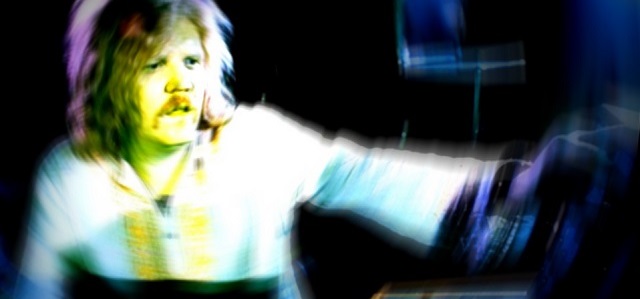
To use an overused yet highly appropriate cliché, Edgar Froese is truly a man who needs no introduction. As founding member of the immensely successful band Tangerine Dream, he practically invented and defined a new genre of music, which still defies easy categorization. Whether you call it electronic music, electronic rock, space music, kraut rock, or (shudder) new age or whatever, Froese and one-time TD member Klaus Schulze were the true forerunners who would spawn a generation of loyal followers, fans who buy their music as well as musicians who strive to imitate their classic sound, particularly from their arguably most innovative period in the 70s and 80s. Now going over 35 years strong and with his son Jerome at the co-helm, Edgar was kind enough to take some time out of his busy schedule and answer a few questions for Exposé.
by Phil Derby, Published 2003-12-01
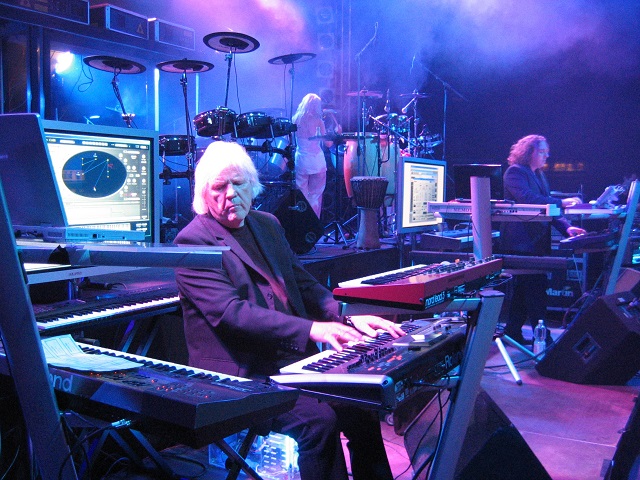 Tangerine Dream has now been entertaining fans for two generations. To what do you attribute this incredible longevity?
Tangerine Dream has now been entertaining fans for two generations. To what do you attribute this incredible longevity?
To the love for art and music as one of its most ethereal forms. An artist will always feel the urge to express himself; it is part of his or her life.
How do you keep the musical vision fresh and alive?
As long as we feel the urge to create, the art that results will always be something fresh and exciting. There is no specific formula. When we complete a piece of music, we feel as excited about it now than we did 36 years ago. It is like the miracle of giving birth — none of your children is ever going to be the same as any of the other ones and, hence, each one will excite you anew. As long as one feels compelled to move forward with one’s own artistic vision, there can never be stagnation. The only deadly trap an artist can run into is to do what others tell him. As soon as the process of creation will become forced upon him, the results will fail to satisfy.
I know you’ve been asked many times what it feels like to be doing your music now with your son. Do you sometimes look over at Jerome when you are working in the studio or performing live, and say to yourself, “this is as good as it gets?”
Yes, exactly. We work as a perfect team of two individuals that inspire and also criticize each other. For our relationship within TD, the father-son-connection is of no real relevance — what is much more important is that we work very well together... better than any other line-up TD has ever seen. Jerome is an extremely gifted and creative musician and it is a pleasure to work with him.
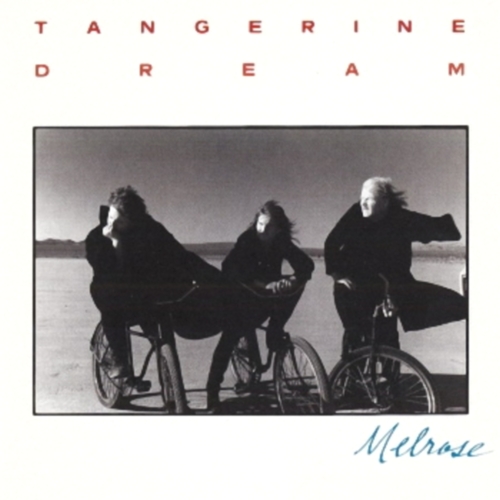 How has Jerome’s role changed in the band over time, and how much influence does he have over the musical direction of Tangerine Dream?
How has Jerome’s role changed in the band over time, and how much influence does he have over the musical direction of Tangerine Dream?
Of course there was a phase where he had to grow into his role in the band. His involvement started with Melrose, where he contributed just a few compositions and some guitar work, but he soon found himself into being an equivalent member of the group. I would say that today his influence with in the band is just as essential as mine. It has always been the work ethic of TD to work as a team, where the sum of the parts would make up the group’s sound and ego-trips had no place.
A rumor circulated among fans in late 1999 that you planned to retire at the start of the new millennium, and hand the reins over to Jerome to continue the Dream. How long do you see yourself being a part of this, and when you are done do you foresee Tangerine Dream continuing in some form?
I will be a part of this as long as I feel comfortable with it. Thus, I can make no statements on the subject at all.
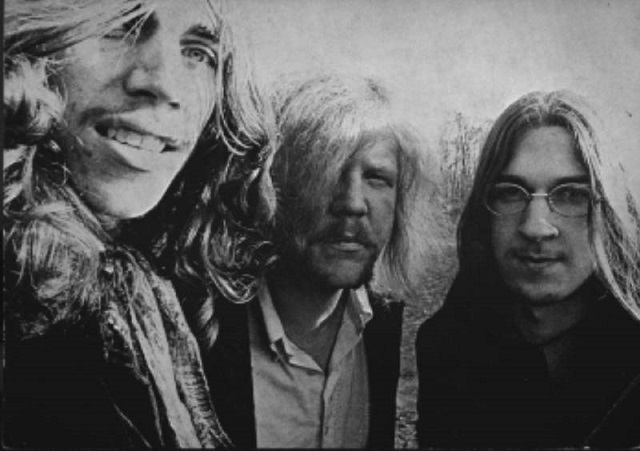 Are you as passionate now about the music as you were in 1970?
Are you as passionate now about the music as you were in 1970?
Yes, surely.
What do you still enjoy the most about the music? The creative process itself? Performing live? Or something else? And what do you enjoy least, or find tedious, about either making the music or the music industry itself?
I would say both the creative process and performing live are what I enjoy most. Working in the studio and performing live are two wholly different things — in the studio you have time to experiment and unleash all of your creativity but it will take some time until you can reap the fruits of your labor, whereas in a live situation, the feedback is instant.
What I find tedious is the “business” side of the music industry. The music industry tends to not care about the creative aspect of music too much and is mostly interested in the product they can sell. Reducing a work of art to a mere product is deadly for the creative side of it. Of course we all have to make a living, but too much of one’s creative energy tends to get wasted on trying to fend off the vultures that try to exploit you. This is why, over the long years of our career, we have always tried to put creativity first and tried to use the music business as a tool to ensure our survival.
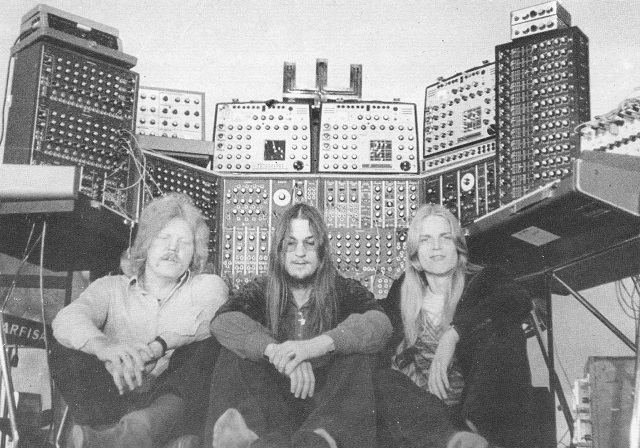 Electronic music is known for fans who love the gear almost as much or more than the music itself. You and your band mates, particularly in the 70s, have been known as innovators who used cutting-edge gear and modified it to suit your needs. Do you still love playing with all the knobs and buttons on your electronic gear, or is it now merely a tool that serves you in the creative process?
Electronic music is known for fans who love the gear almost as much or more than the music itself. You and your band mates, particularly in the 70s, have been known as innovators who used cutting-edge gear and modified it to suit your needs. Do you still love playing with all the knobs and buttons on your electronic gear, or is it now merely a tool that serves you in the creative process?
For us, all instruments we ever used have only been tools that enabled us to realize our artistic vision. Electronic instruments give us the most diverse bandwidth of sounds for our creative process. But we have never been and never will be dogmatic as to the choice of instrumentation for our music.
What do you think of the current trends in hardware and software for composing and playing synthesizer music? Do you think they encourage or discourage creativity and individuality?
A tool will always only be as good as the person who is using it. They encourage creativity in that they are easier to use than the beasts we had to tackle. But still, in the hands of a person without creative talent, they will not produce anything worthwhile.
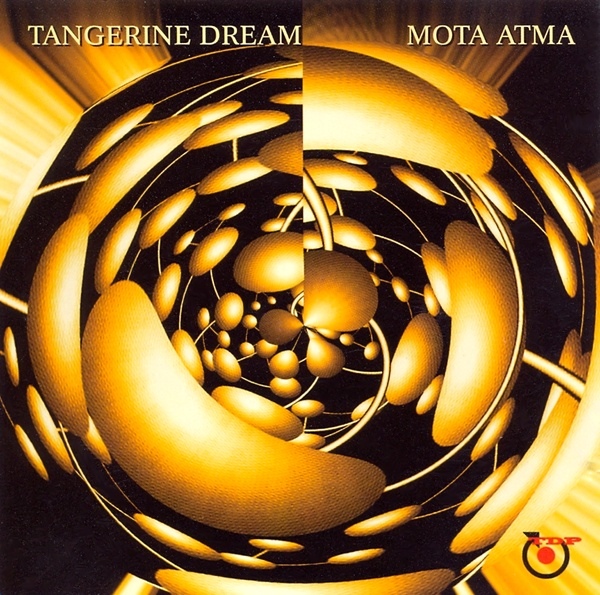 What current musical projects are you working on, or planning for the near future that fans can look forward to? Any big surprises in store?
What current musical projects are you working on, or planning for the near future that fans can look forward to? Any big surprises in store?
We are working on two projects that are keeping us fairly busy at the moment. First of all, the fourth installment of the Dream Mixes series, of which people who attended the show at London ́s Astoria club in February already got a sneak live preview. And secondly, we have begun working on the second part of Dante ́s Divina Commedia, which we hope to have completed by the end of the year. And... as all of our long-time fans will know, there are always surprises in store with TD. But... they would stop being surprise and hence would lose their fun if we gave them away now and here.
Surprises indeed! After this interview was completed, the big buzz around the music lists on the net was that Tangerine Dream is finally, after years of begging by fans, releasing a series of archive recordings from their massive vaults, and from fans’ own bootleg recordings, which they have been cleaning up for release. The first of these, a proposed seven-disc set called, appropriately enough, The Bootleg Box, is expected before the end of 2003. It includes some of their most coveted original live recordings from 1974 to 1976. According to the press release, this is only the first of several such planned releases, truly a Tangerine Dream come true.
Filed under: Interviews, Issue 28
Related artist(s): Edgar Froese, Tangerine Dream
What's new
These are the most recent changes made to artists, releases, and articles.
- Review: Sterbus - Black and Gold
Published 2026-03-03 - Release: Janel Leppin's Ensemble Volcanic Ash - Pluto in Aquarius
Updated 2026-03-02 15:06:51 - Release: Janel Leppin - Slowly Melting
Updated 2026-03-02 15:05:27 - Release: Alister Spence - Always Ever
Updated 2026-03-02 15:04:11 - Release: Let Spin - I Am Alien
Updated 2026-03-02 15:02:41 - Review: Falter Bramnk - Vinyland Odyssee
Published 2026-03-02 - Review: Exit - Dove Va la Tua Strada?
Published 2026-03-01 - Review: Steve Tibbetts - Close
Published 2026-02-28 - Release: We Stood Like Kings - Pinocchio
Updated 2026-02-27 19:24:02 - Release: Stephen Grew - Pianoply
Updated 2026-02-27 19:20:11 - Release: Thierry Zaboitzeff - Artefacts
Updated 2026-02-27 00:16:46 - Review: Kevin Kastning - Codex I & Codex II
Published 2026-02-27 - Release: Zan Zone - The Rock Is Still Rollin'
Updated 2026-02-26 23:26:09 - Release: The Leemoo Gang - A Family Business
Updated 2026-02-26 23:07:29 - Release: Ciolkowska - Bomba Nastoyashchego
Updated 2026-02-26 13:08:55 - Review: Immensity Crumb - Chamber Music for Sleeping Giants
Published 2026-02-26 - Release: The Gatekeepers - Diary of a Teenage Prophet
Updated 2026-02-25 15:55:58 - Review: Mars Lasar - Grand Canyon
Published 2026-02-25 - Listen and discover: Mordecai Smyth will not break your back
Published 2026-02-25
